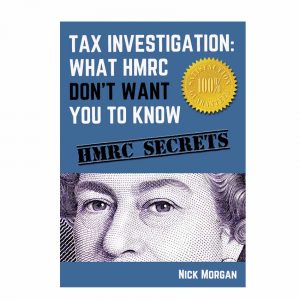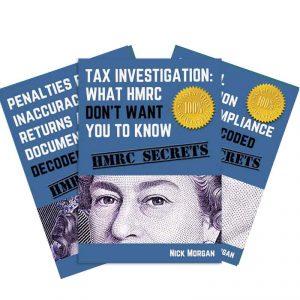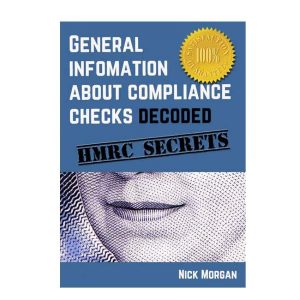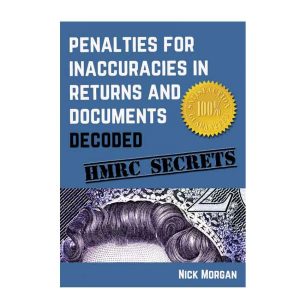What’s Happening With The Single Compliance Process?
Tax investigation expert Chris Chadburn picks his way through the latest changes at HMRC. It seems that they can’t decide if it’s better to tell the person being investigated why the case has peen opened or not…
Before self assessment was introduced in 1996/7 the inspector had to justify the opening of an investigation. Under SA the taxman was under no obligation to do so and typically did not. That position has been under review as part of the new single compliance process, but HMRC has gone very quiet on that topic.
Interviewing the taxpayer at an early stage of an investigation has always been a critical objective for the inspector. In the absence of candid explanations of the reasons for the investigation or detailed agendas, advisers tended to:
- provide what was the legally required – usually records and some basic
- get written questions from the inspector after the record review
- consider the pros and cons of an early meeting after considering the answers to those questions.
In late 2007 HMRC announced trials of a new approach of “openness and early dialogue” (OED) to “improve the way we deal with our formal enquiries. This more collaborative approach had already been successfully used with the large business sector and by mid-2009 it was being rolled out to the larger (turnover £200m or more) and higher risk businesses being dealt with by local compliance.
The essence of SCP is:
- Four Levels of checking from one – no meeting dealt with by correspondence or on the phone to four where an “evasion approach is required
- Estimated average times to work the case varies from 1.5 days (Level 1) up to eight days (Level 4)
- Process:
- OED – only addressing the identified risks
- Collaboration with agent
- Swift on site records review – sampling as necessary
- Commercial approach
Issues
By this stage it was clear that although OED was being used across several significant areas of HMRC, but most small business investigations still kicked off with the inspectors playing their cards very close to their chest. When were my typical clients going to get a fair crack of the whip?
In October 2009 I attended an HMRC “learning together” session on the new powers and penalties. I wrote an article for Taxation on this and this included the following:
“(Mark Leech HMRC director) also confirmed that the sharing of identified risks at an early stage was a road that HMRC was in the process of going down. He believed this was the best way to significantly raise the cost effectiveness of inspections and this was in everyone’s interest. Having said that HMRC was not obliged to share information with the taxpayer in any particular situation”
This did not fill me with any confidence that small business taxpayers were going to get the same deal as larger firms any time soon. Most of my work is from accountants and typically I get involved several weeks or months after the start of an investigation. Although it would seem that there has been some shift towards more openness the process is clearly not yet at the end of the road and will not be until it is formalised.
I have discussed this with a number of HMRC investigators over the years. They suggested that the troops on the ground were very wary of the openness approach in OED/SCP, in particular with the more serious cases.
In my second FOI request I asked:
- when the trial phase would end (the last update had been in September 2012); and for
- confirmation that it was envisaged that taxpayers and agents would be informed of the perceived risks at all levels of SCP
- clarification of what HMRC meant by local compliance fraud work (excepted from SCP).
The purpose of the second and third questions was to establish whether there was any obvious dilution of the openness being touted by HMRC in previous years.
Answer two was that they would “seek to share sufficient detail of the perceived risks at all levels so that the customer can understand the risk”. There is then a standard response that they may be unable (or unwilling?) to provide certain information and the example consistently cited is information provided by a third party.
A follow-up question brought further details “all level 4 cases in the SCP will generally involve the sharing of some information on the perceived risks… the amount of detail shared will be different for each case …” (third party information again cited).
Answer three simply says that serious fraud work under Code of Practice 9 is outside the scope of the SCP.
The June 2011 SCP brief refers to the exception for COP9 civil investigation of fraud work . The October 2012 version of the brief refers to a key exception for local compliance fraud work. Is that the same thing? It might well be, but it could also mean “any case where it is believed that there has been deliberate understatements of tax”. That is a very different thing.
The end of the road?
HMRC stated in response to my latest FOI request that “there will be an update on the SCP following the conclusion of the trial shortly”. The trial ended on 31 March 2013.
It would be useful to see more examples in that update of situations where HMRC will not provide details of the perceived significant risks at the outset. Let’s have some openness. After a wait approaching six years a lack of clarity on this key point would add insult to injury.










Unless things have changed significantly since I left HMRC in 2010 their risk analysis teams are well to be frank crap. Most inspectors were and probably still are too embarrased to reveal the identified risks as they know that they could quickly be explained away without them getting any money. They therefore go on a fishing trip and fall back on their old favourites which will inevitably include a very thorough cash flow and bank analysis.
There is also now in SME enquiries a greater reliance on information received from the public. And the inspector would again be too embarrased to explain that he has been told he must open the enquiry because a neighbout is jealous of your new car and expensive holidays.